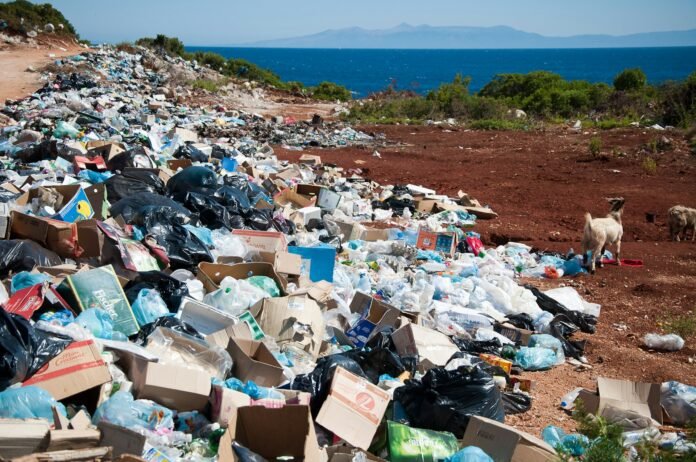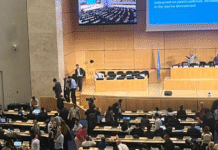
After five rounds of intense negotiations – and a stalemate in what was supposed to be the fifth and final round in Busan, South Korea, in November 2024 – stakeholders are meeting again for the second part of the fifth session of the Intergovernmental Negotiating Committee on Plastic Pollution (INC-5.2) in Geneva, Switzerland to negotiate a legally binding UN Global Plastic Treaty. This time, however, there is general optimism and hope – albeit with caution.
Just to give a quick recap, in March 2022, the United Nations Environment Assembly (UNEP) agreed to create a legally binding international law to reduce plastic pollution worldwide, covering the full lifecycle of plastic. This followed a series of consultations – INC-1 in Punta del Este in November 2022, INC-2 in Paris in June 2023, INC-3 in Nairobi in November 2023, and INC-4 in Ottawa in April 2024.
Sticking points in INC 5.1 in Busan were demands from anti-pollution campaigners to cut virgin polymer production and plastic production and to regulate hazardous chemicals – which oil-and gas-producing countries had been opposing. However, the campaigners succeeded in shifting the conversation to addressing the entire plastic lifecycle – discussing a treaty that goes to the root causes of pollution.
Around 460 million metric tons of plastic are produced every year, of which 20 million end up polluting our environment. Only 10% of it is recycled. The rest goes to landfills, is incinerated or ends up as litter – in land or water. According to estimates, global plastic waste is expected to reach 1.7 billion metric tons by 2060.
In the Geneva meet from 5-14 August, representatives from 175 countries will participate in the negotiations, which will take two official forms – plenary (live-streamed on UNEP’s website), and contact groups, which are confidential. The negotiations are presided over by the Chair, ambassador Luis Vayas Valdivieso of Ecuador, and negotiated by countries in the United Nations, called Member States.
In Busan, although a small group of countries tried to weaken the final treaty text, 85 countries committed to a legally binding treaty enshrining reduction targets, phase-out of harmful chemicals, a just transition, and an equitable financial mechanism.
According to inputs Packaging South Asia received from sources in Busan, 103 countries signed in support of a Declaration on Primary Plastic Polymers; 85 countries signed the ‘Standing Up for Ambition’ statement; 94 countries signed a Declaration on Plastic Products and Chemicals of Concern; 100 countries signed a text proposal to adopt a plastic production reduction target; and 151 countries support a proposal for a dedicated, equitable Financial Mechanism.
Chaired by Norway and Rwanda, the High Ambition Coalition to End Plastic Pollution – a group of around 71 like-minded countries with a shared common ambition to end plastic pollution by 2040 – is taking a key initiative. India isn’t part of this group. The group suggests restraining plastic consumption and production to sustainable levels; enabling a circular economy for plastics that protects the environment and human health; and achieving environmentally sound management and recycling of plastic waste.
India didn’t back the cut in polymer production, but listed its measures to battle plastic pollution – single-use ban, the EPR regime, push for sustainable packaging, and reducing the use of virgin material. India advocated for a voluntary approach on changes in plastic product design and financial and technical aid in waste management.
Though optimistic, campaigners feel negotiating through the key tension points won’t be a cakewalk – including ambitious and binding plastic production cuts in the treaty, which a small but vocal group comprising fossil fuel-producing nations is opposing. According to this group, plastic becomes polluting at the disposal stage only, and so the emphasis should be on downstream measures such as waste management. Campaigners argue that the ‘life-cycle’ starts at extraction and that plastic is pollution right from fossil fuel extraction.
A dedicated financial mechanism that includes mandatory contributions from high-wealth and top-plastic producing countries to support lower-income countries to meet the agreement is another key sticking point. As Isaac Dlada, executive director, Eswatini Environment Authority, said in a webinar conducted by the Center for Science and Environment (CSE), “Commitment and funding will be a problem. We need our diplomats to find each other.”
Despite the rough edges, stakeholders are high on optimism with the newfound unity. Lars Stordal from GRID-Arendal said in the discussion, “Ambitious countries are unified – the moment will not go away. The momentum exists beyond the agreement itself.” Andreas Schei from Norway added, “The conditions are well set. Rare to have such unity and hope.” Sunita Narain of CSE said, “Plastic management brings the North and the South together… we really need to pull the world together.” So all eyes are on Geneva with fingers crossed.










